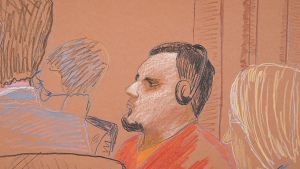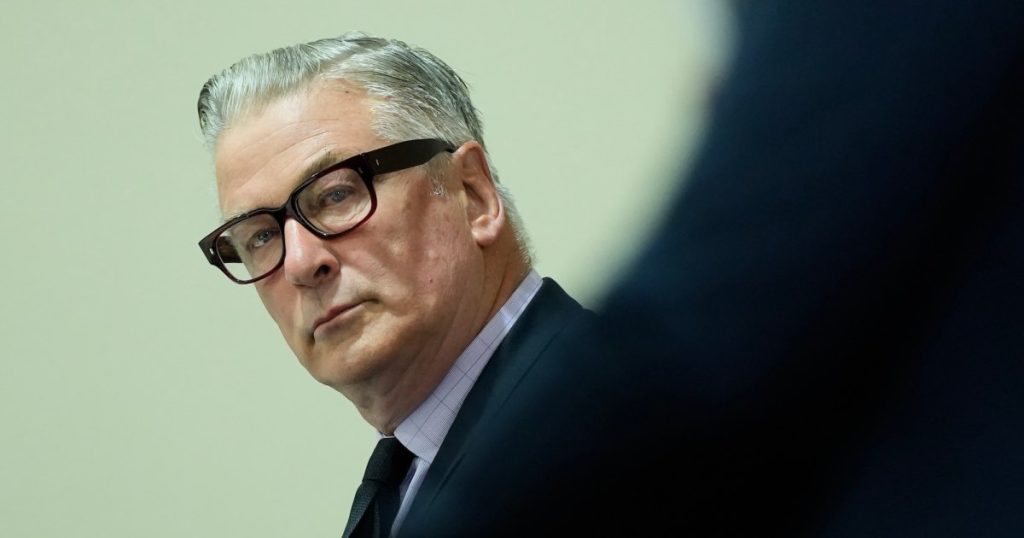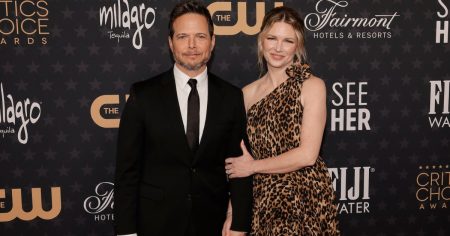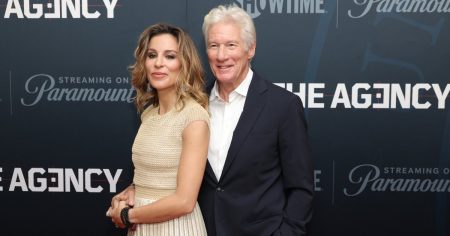Alec Baldwin, the actor embroiled in the tragic accidental shooting on the set of the film “Rust,” has launched a legal counteroffensive against the prosecutors who pursued criminal charges against him. Baldwin’s lawsuit, filed in a New Mexico federal court, alleges malicious prosecution and civil rights violations, targeting special prosecutor Kari T. Morrissey, First Judicial District Attorney Mary Carmack-Altwies, and others involved in the case. The core of Baldwin’s claim centers on the assertion that the prosecution deliberately withheld evidence that could have exonerated him from the involuntary manslaughter charges he faced. The lawsuit paints a picture of a prosecution driven by a relentless pursuit of a conviction against Baldwin, regardless of the factual and legal merits of the case. Baldwin’s legal team contends that the prosecution’s actions were motivated by ulterior motives, prioritizing personal or political gain over the pursuit of truth and justice. They argue that Baldwin was unjustly targeted and his fundamental rights were trampled upon in the process. The prosecution, however, has responded with a terse statement, expressing anticipation for their day in court, suggesting a vigorous defense against Baldwin’s allegations.
The legal battle stems from the October 2021 on-set shooting that tragically claimed the life of cinematographer Halyna Hutchins and injured director Joel Souza. A prop gun held by Baldwin discharged a live round, leading to the fatal accident. The subsequent investigation and legal proceedings have been marked by twists and turns, with Baldwin consistently maintaining that he did not pull the trigger. Initially charged with two counts of involuntary manslaughter in January 2023, Baldwin pleaded not guilty. These charges were later dropped in April 2023, only to be reinstated, leading to another indictment and a scheduled trial in July 2024. However, this second case was also dismissed by Judge Mary Marlowe Sommer, who concurred with Baldwin’s legal team’s arguments that the prosecution had suppressed potentially exculpatory evidence. Judge Sommer characterized the prosecutorial misconduct as irreparable, leaving dismissal as the only appropriate remedy.
The dismissal of the charges against Baldwin marked a significant turning point in the legal saga. Despite efforts by special prosecutor Morrissey to reinstate the case, the district attorney’s office ultimately declined to support further prosecution. This decision, announced in December 2024, effectively ended the criminal proceedings against Baldwin, freeing him from the looming threat of a trial. Morrissey attributed the decision to numerous obstacles encountered by the state in its pursuit of the case, hindering their ability to prosecute to the fullest extent of the law. While Baldwin has been cleared of criminal liability, the legal fallout from the tragic incident continues, focusing on the accountability of other individuals involved in the film’s production.
The legal spotlight has shifted to the film’s armorer, Hannah Gutierrez-Reed, who was found guilty of involuntary manslaughter in March 2024 and sentenced to 18 months in prison. Gutierrez-Reed’s legal team’s efforts to secure a new trial were unsuccessful, with their appeal being denied in September 2024. This outcome underscores the complex legal and ethical questions surrounding on-set safety protocols and the responsibilities of those entrusted with handling firearms in film productions. The “Rust” shooting has prompted renewed scrutiny of industry practices and calls for stricter regulations to prevent similar tragedies in the future.
Baldwin’s lawsuit against the prosecutors marks a new chapter in the ongoing legal saga surrounding the “Rust” shooting. His claims of malicious prosecution and civil rights violations highlight the potential for prosecutorial overreach and the importance of safeguarding the rights of the accused. The lawsuit is likely to delve into the intricacies of the investigation, the handling of evidence, and the motivations behind the prosecution’s pursuit of charges against Baldwin. The outcome of this legal battle could have significant implications for the involved parties and potentially influence future prosecutorial practices.
The “Rust” case serves as a stark reminder of the inherent risks associated with filmmaking, particularly when involving firearms. The tragic consequences of the accidental shooting have reverberated throughout the industry, prompting calls for increased safety measures and greater accountability. The legal proceedings against both Baldwin and Gutierrez-Reed have shed light on the complexities of determining culpability in such cases and the challenges of balancing artistic expression with the paramount importance of on-set safety. The ongoing legal battles and the resulting changes in industry practices will likely shape the future of filmmaking and the ways in which productions address the critical issue of firearm safety.










